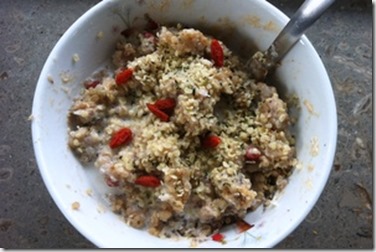By Ross Turchyn
A blade of grass grows through concrete, not because it wants to, but because that is what it must do—often because that is all it knows how to do.
Summers on the prairie are as long as a golden sea of wheat stretching off into the country mile. Both my grandparents owned farms, coming over from Germany and the Ukraine as teenagers. Spending my weekends and summers on the farm taught me man’s role in nature as steward and caretaker of the land he breaks, as well as what is surrounding what is yours.
At age 10 I drove a farm tractor, herded 70 head of cattle, and threw 60 lb hay bails for the 10 days of Harvest.
Weekdays I grew up in a variety of struggling but very “Leave it to Beaver” urban settings. The pure luck of it was being in an experimental program during elementary school called the Open-Air Classrooms and later in highschool the International Baccalaureate Program. I majored in psychology and minored in comparative religious studies at the University of Winnipeg.
The common unifier In Winnipeg is that -40˚C will kill you whether rich, poor, ugly, beautiful, lucky or not. From a rich community history of new emigrant farmers supporting each other in their common need to live, we developed cultural expressions like the art of a “social”—a paid party between all the relatives and friends that covers the cost of a honeymoon and wedding.
I was Top-Athlete and Top-Course on my Basic Military Training and served in an elite combat arms unit—armoured reconnaissance—where I swore an oath to give my life to protect yours. As a teenager my job was learning to blow up tanks. That is the nature of man’s choosing to struggle against nature or society, the desperation of a 150 lb man on foot single-handedly confronting 35 tons of armoured tank moving at 60 km an hour.
In 1989, I tree planted the coast from Feb. 4 to Sept. 15. In all weather for 12 hours a day, six days a week, with a steel blade and 30 lbs of trees strapped to my body, I negotiated a near vertical obstacle course of industrial wasteland called a clear-cut—for 15 cents a pop. It takes 20 years for a tree to begin producing oxygen, I have planted over half a million in the mountains of B.C. With the snow coming, I dropped back to my off-season cross-training job as a bike courier in Winnipeg over the winter.
Next season, two days before my birthday, I had my first diabetic episode on the tree planting block. It was only the beginning, as each layer revealed itself—malapsorption syndrome, celiac disease, Crohn’s disease, myalgic encephalitis, Gilchrest syndrome, episodes of brain damage from functional hypoglycemia combined with ketone-acidosis (my blood was filling with ketones—ammonia converted to paint-thinner by my own metabolism). Over two years I transformed from a 185 lb super-hero into a 126 lb human being.
With all of my education, training, and direct human experience, it was only then I began to live.
As a disabled person, I began to learn human arts of living (compassion, patience, discipline) readily, because they were at the cost of the fulfillment of my life. That is how your strongest weakness can become your greatest strength.
Nothing i was doing changed, but everything I did changed. I took my training as a military observer, and nine years knowledge from tree planting and of human limitations in the pursuit of any goal, and worked in Nelson as a social-community business consultant and project organizer for seven years—coining the term “Person With a Disability,” participating in the choice of business incorporation for Shamballah, and operating a soup kitchen out of my home for eight months when the Salvation Army was internally audited and shut down without warning, cutting a life-line of community.
I am now attending UVic and Royal Roads studying communications, and nutritional and soil sciences to work as an international spokesperson and educator in nutraceuticals and biotechnology…but that’s just to pay the bills. Really, though, I have come to Victoria to express the truth of my self as a process of understanding the nature of man and society.
I find it profoundly disturbing that the combat life-expectancy for my job was 13 seconds—the giving of my life for my country was quantifiable and absolute. Every disabled person in B.C. receives $375/month shelter allowance, which includes utilities, so as to the living of my life in my country—I am worth half the market value of a regular human being. Combining that one detail with the income cap for PWD recipients determines in advance the rest of my life at below the poverty level.
Nothing comes to our hand but through another, in sharing what we love we grow community. When any circumstance is treated with presence, awareness, and respect, then every situation can be answered with genuineness, and growth happens. It is easy to save the world, find what you love and care for it.
My name is Ross Turchyn, Superhero (retired). I am a UVic student volunteer on loan to the CBC of C for the next five years.
Canada’s Cannabis Journal since 2010


